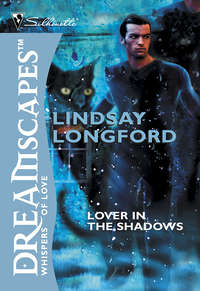
Полная версия
Dark Moon
Ryder Hayes, stalking through her dreams, his face turned away from her, only his lean shape betraying him.
“Mommy!” Impatiently, Mellie waved Josie to her. The bangle bracelet, nothing but imitation gold, glittered with her movement. “Now, Mommy. Now!” She stamped one yellow-sneakered foot on the ground and turned to run.
The shape drifted with Mellie, tracking her.
Hayes? Or someone else?
Her blood quickening, Josie twisted in her sleep.
“Mellie, wait!” she called out. From the corner of her eye, Josie saw the shadowy figure stalking beside her now, moving with the easy fluidity with which Ryder Hayes had disappeared into the woods, and she wanted to turn and look, really look, see if its eyes were the haunted dark of Ryder Hayes’s, so that, waking, she would know.
But Mellie was vanishing ahead of her and Josie couldn’t take time to linger. She couldn’t lose sight of her daughter. If she did—“Wait for me, sweetie!” she called. Changing, swelling to an enormous shadow, the form brushed against her, closed her in its darkness as she screamed, “Mellie!”
She knew she screamed. Her throat was raw with the effort. But the words never came out. Strangled in her throat, they woke her every time. “Wait,” she whispered now, the early-morning sunlight a pallid yellow that hinted of the heat to come.
The phone was still ringing.
With a shaking hand, Josie reached for it.
She expected static.
“Mrs. Conrad?” Low, the voice slid over her skin like the tickle of a feather.
She thought he hesitated momentarily over her name. “Yes, Mr. Hayes?”
“You shouldn’t go to the police.”
“What?” she whispered, stricken.
“Don’t go to the police with your story about what you think you saw in my house. You’ll look foolish if you do. Your daughter’s not here. As far as I know, I’ve never seen her.”
Josie couldn’t speak.
“Nor are those dogs my pets. Don’t make a fool of yourself, Mrs. Conrad. Take my advice.”
The click as he hung up sounded like a threat.
Leaning her head on her hands, Josie sat at the edge of her bed.
He’d known she was going to the police.
He’d told her she would make a fool of herself if she did.
She pulled on clean shorts and a long T-shirt that she clipped into a wad on one side. Purple, orange and red, the ring made the shape of an exotic flower when she pulled the fabric through it. A gift, too, from Mellie.
Josie didn’t like feeling threatened by Ryder Hayes.
Would Stoner have called Hayes? Would Stoner have had any reason to warn Ryder Hayes? Complications. Puzzles within a puzzle, but she hadn’t changed her mind about talking with Stoner.
As she poured a glass of milk and snagged the piece of toast that popped up, she heard the heavy thump of the weekend paper landing at her front step. Carrying the milk in one hand, she walked barefoot over the wood floor to the front door. She would read the comics, the sports pages, the editorial.
She couldn’t read the front-page headlines anymore.
Opening the inside front door, she reached for the latch on the screen door.
Even without his implied threat, Ryder Hayes made her uneasy in ways she couldn’t identify.
He had been in her dream, an unsettling darkness moving through the mist toward her. He’d become the haunting shape in her dream. The figure was always there, just out of sight, and each time she had the dream, she was left frustrated, feeling that if she could only once remember to turn and look straight at that shadowy shape, she would know—
She flicked the latch up as she glanced down at her stoop.
Through the glare of sunlight coming through the mesh of the screen, she saw the rattlesnake coiled on top of the thick mat made by the folded-over newspaper.
Stretching toward her and following the movement of her arm behind the screen, its head was flat and triangular. The ropy body was thicker than her arm, its diamond shapes iridescent in the sun. Underneath those gleaming coils, showing in patches, the headline caught and held her gaze. Her eyes fixed on the words and she read them in a blink as the snake’s body thrust forward: ‘Angel Bay Child Remains Missing.’
With both hands, Josie slammed the wooden door. Glass shattered on the floor, and milk splashed up her legs.
The force of the snake’s strike thudded against the screen, his fangs breaking through it, catching on it, scraping the inside door. Trapped high off the ground in the mesh of the screen, his heavy body thrashed against screen and wooden door.
Covering her mouth with a shaking hand, Josie stretched out a leg and dragged a chair to her, bracing it under the doorknob. Shuddering, she snapped the lock and retreated to her kitchen, gagging as the rattlesnake battered at her door, its thrashing smacks shaking the doorframe.
She sank into an aluminum-and-plastic chair at the table. The door shuddered with the heaviness of the snake’s body smashing into it. She couldn’t think what to do.
A plan. She needed a plan. She couldn’t deal with that reptilian body only a cheap wooden door away. She couldn’t cope with it. Not now. Not with her dream waking her with its sense of evil pervading her world, not with Ryder Hayes’s phone call.
No, she couldn’t face that enormous creature thumping with intent against her house.
On the other side of her front door, the snake’s body made a hissing sound as screen and wood slid against one another with the heavy flailing.
Pulling her feet up beneath her, Josie locked her arms around her knees. “Enough, oh, please, enough,” she moaned, rocking back and forth, the clunking sound of aluminum against her floor riding under the agitated whacks of the snake’s body. “I can’t do this. I can’t.” She gagged, dry mouthed, nausea growing with each bump and whack against the door.
But of course she could, and so she stayed curled into herself for long moments, gathering her strength, preparing one more time to do what she had to do. Reaching deep into herself she disciplined herself to ignore the nausea and weakness dissolving her bones.
Finally, unlocking her arms, she stood up and went to get her knee-high boots, thick leather gloves and hoe.
If she’d had a gun, she would have used it.
But she didn’t. She had the sharpened hoe, and, tears streaming down her face, she used it finally, after long minutes of walking from side to side, nerving herself to approach the thrashing snake, not recognizing herself in the woman who, screaming and cursing, slashed and sliced at the reptile until the huge body lay in pieces, separated from the head hooked into the screen.
Tasting bile, Josie got a bucket and scooped up the remains of the snake. She had to use the hoe to knock the head off, ripping the mesh as she gouged at it. Gagging again, she looped the hoe edge under the curved fangs and lifted the head into the bucket. Sliding the metal end of the hoe under the metal handle of the bucket, she carried it to the steel garbage can at the back of her lot. Metal hoe clicked against bucket handle, clicked with each shaking step she took.
She left the bucket beside the garbage can. She’d done as much as she was able to for the moment. She slipped the hoe free, and the bucket tilted, wobbled. Nausea rolled up as she saw the bloodied heap mixed with chunks of newsprint.
She ran. Dropping the hoe, she ran for her garden, but she didn’t make it. Three feet away, she doubled over, retching, the harsh sounds tearing through her until she was spent and empty.
But she stayed upright.
Later she would remember that she wasn’t driven to her knees.
She coped.
Reminding herself of that truth over and over, she summoned the strength to retrieve her abandoned hoe, to hook up the hose to the outside spigot and waste precious water flooding down the concrete stoop and screen door until no trace of the snake’s presence remained except the gaping mesh flaps hanging like pennants from the edge of the screen door.
She felt as if the snake had exuded evil, its poisonous molecules oozing from it to her, lodging in her clothes, her hair. If she could have, she would have stripped naked and bathed outside.
Instead, methodically, systematically, squandering water with a vengeance, she sprayed herself with the hose first and then went inside, cleaned up and changed into a cotton dress. Keeping out the clip that had been Mellie’s present, she first washed it and then threw her shorts and shirt into a garbage bag.
Her hands never stopped shaking.
Bart would have been surprised.
Shuddering, she knotted the bag with one vicious twist and dropped it into the trash. She wasn’t overreacting one little bit, she told herself firmly and marched out her front door.
A tiny clink as the toe of her shoe nudged a small cylinder wedged into the crack between two of the walkway bricks.
The red-pepper capsule.
Stooping, she picked it up. Drops of water glistened against its shiny surface. The force of the water from the hose had forced it into the space where two bricks hadn’t quite met.
It must have been on her stoop. Under her newspaper. With the rattlesnake on top? She recalled distinctly the clattering sound the cylinder had made as it rolled off the edge of Hayes’s porch.
Driving into Angel Bay over the bridge that crossed Angel River, she could see the roof of Ryder Hayes’s house to the north.
At the Hayes property, the river swung in before taking a wide curve out toward the gulf and the bridge from the mainland to the offshore islands.
Devil’s Island was visible from the Hayes property, then Santa Ana and finally Madre Mia, which, over the years, had become Madder Me for Angel Bay natives.
He had come to her house this morning, and she hadn’t heard him.
She’d heard the newspaper delivery boy.
But not Ryder Hayes.
Every self-serve newspaper stand she passed on the way to the police station had black headlines that leapt out at her, and she kept her eyes fixed straight ahead. Just before she walked up the steps into the station, she felt a tickle of awareness at the back of her neck, and, frowning she stopped and turned to look behind her.
A shadow vanished behind the corner of the dry cleaners.
An effect of the hazy heat?
Or someone hiding from her? Ryder Hayes?
The deep tolling of the bell from the Baptist church down near the river rang out, the sound long and sonorous, throbbing in the air around her.
She squinted toward the corner and saw nothing except the blaze of sun and the haze of heat rising from the sidewalk.
The door to the police station opened and Jeb Stoner poked his head out.
“Hey, Miz Conrad, come on in out of the heat. I’ve been watching for you.”
“Thanks.” Josie cast one quick look at the empty street behind her and followed the sandy-haired detective inside. She wanted to ask him why he’d been waiting for her, but thinking about that uneasy awareness she’d had, she allowed the moment to pass. Maybe she’d ask him later.
Inside he motioned her to his desk, letting her precede him. Like a rag doll, he flopped into a cracked vinyl swivel chair behind his desk. The chair creaked and groaned under his slight weight. “Can I get you some station-house gunk?”
“No. Thank you.” She folded her hand over the clasp of her purse hanging from its shoulder strap.
He always offered her coffee, and she never accepted. He never suggested a Coke or a glass of water. Josie wasn’t sure whether he didn’t remember or whether it was his way of making an awkward joke. Either way, she had grown tired some months ago of the pro forma offer.
“I don’t drink coffee.”
“Yeah, right.” Everything he said to her came out sounding as if he didn’t believe her. It had been that way from the first.
Conveying the impression that he had all the time in the world, he fanned himself with a sheaf of papers as he waited for her to begin. She’d discovered it was one of his techniques. Most people found it hard to sit in silence. She wasn’t one, but she had business and she wanted to get on with it, not play head games.
“Detective Stoner, something strange happened yesterday.”
He leaned forward and slipped into a cracker drawl. “Miz Conrad, if you only knew, sumpin’ strange happens in this town every day.” He tapped his fingers on his desk. “We haven’t found that boy. Eric.” He looked away from her.
“Yes. I know.”
“I’m sorry. I know you hope we’ll find him alive. We sure as hell want to.” Continuing to avoid her gaze, he sighed.
“Detective—” she paused, not quite sure how to say what she wanted to “—Ryder Hayes is a sort of neighbor of mine.”
“What kind of neighbor is that? A ‘sort of’ one?” The chair creaked and squeaked. “Do you know him?”
“No. I met him yesterday for the first time.” She lifted the flap of her purse and her fingers brushed the edge of the capsaicin cylinder. “Look, I think I heard a child in his house. Crying.” She stared at the floor, at the black pattern of scuff marks against the linoleum, the coffee stains on the side of Stoner’s desk. “I know it sounds unbelievable, but…”
There was a long pause.
“And when would that have been, Miz Conrad?” he asked gently. He picked up a pen, put it down carefully. “Yesterday?”
“Yes,” she said slowly, puzzled.
“You were pis—ticked off with him, weren’t you? About the dogs you thought were his?”
“What?” Josie spoke very carefully, not ready to uncork her temper but well and truly pis—ticked off now. “What are you talking about?”
“Um,” he said, stretching out his short legs and watching her from half-closed eyes. He was a man who sat tall and stood short, a disproportionately long torso giving the illusion that he was taller than his five foot nine. As he pivoted under his desk, his feet brushed against the sides of her shoes. Josie tucked her toes under the rung of the metal folding chair as he pa-dum-dumped in a negligent rhythm on the arms of his chair. “Well, it’s like this, Miz Conrad. Hayes came in earlier today.”
“What?” Josie’s fingers tightened on her purse.
That was why Stoner had been watching for her, to “handle” her with official soothing.
“He said we might expect a call from you. He wanted to touch base with us first.”
“He’s been a busy man, Detective.” The red-pepper spray at her house. The visit to the police. Oh, yes, Hayes had been very busy. She wished she knew what else he’d been doing during the long hours of the night after she left his house. She shut her eyes for a moment, collecting herself. “What did he have to say?”
Stoner’s voice was pleasant. “He thought you might be…upset, is how I think he put it.”
Josie leaned forward and gripped the edge of the scarred desk. Ryder Hayes had been one jump ahead of her. He’d been busily creating a picture of her for the police. A picture she didn’t care one damned bit for. “Listen, ‘upset’ doesn’t begin to describe how I felt about his dogs—”
“They’re not his dogs, Miz Conrad.”
“So he says.” She stood up, angry with Stoner, with Ryder Hayes, with herself. “But the dogs were on my property. For all I know, they might be responsible for what’s happened to the children. They’re dangerous. They went toward his house, and I believe they’re his. And when I went to his house to—” she paused, wondering what word was best to use “—to talk with him about the situation, I think I saw a child crying in the hallway of his house.”
“A child?” Stoner brushed his hand against the edge of an envelope.
Leaning toward him, both hands flat on the desk on either side of her purse, Josie added, “You should consider adding him to your list of people to investigate.” She whirled away, whirled back in anger. “Why did he come here, anyway? What did he give as his reason for making a Sunday-morning visit to the police station? Don’t you think it’s a little peculiar? Just a tiny bit suspicious, Detective?” Josie was so angry she thought her eardrums would burst with the force of her blood pounding in her head.
She wanted to scream at the stolid-looking detective, shake him, make him get up and go immediately to the Hayes house, and yet Stoner sat there rocking and watching her with that bland expression that told her nothing.
“Calm down, Miz Conrad,” he said, rocking forward and leaning his elbows on the desk.
“Calm down?” She wanted to screech at him, pull her hair out by the roots. Instead, she controlled her voice.
He motioned toward the chair. “Yeah. Take it easy and set a spell longer, hear?” Light blond hair grew thickly along the length of his fair, sun-spotted arms.
Like fur, Josie thought irritably. “Why should I? You’re wasting my time, Detective. And telling me nothing. Nothing.”
“Sit down, Miz Conrad.” The casual tone disappeared. Command deepened his easy, light voice into something else. “Please.”
Josie recognized an order. She sat.
Stoner templed his fingers, pad to pad. He avoided her eyes. “I know you think we haven’t done enough to find your daughter.”
Not answering, Josie sat there, tension pounding in her head. He was right. She didn’t believe they’d done everything they could have. If they’d looked harder, spent more hours, searched—She wound her fingers into the braided strap of her purse.
“However,” Stoner said, letting his hands fall to the desk, “we’ve done everything we can. We’ve sent out APBs, we’ve distributed pictures to the restaurants along the highway, we’ve followed up every lead we’ve been given.” His voice was weary. “You know that. You’ve been in here twice a week, checking.”
Josie nodded, her throat spasming against the words threatening to spill forth. She couldn’t afford to alienate Stoner. He was her only link to the search for Mellie. Stoner was willing at least to talk with her. Over the months, the other detectives had passed her along to him, tired of her calls and visits. “Yes,” she managed to say at last. Clearing her throat, she continued, her voice rising with frustration, “But why won’t you follow up on Ryder Hayes? How can you know he’s in the clear unless you’ve searched his house?”
“We searched his house earlier today.”
“What?” Josie sank bonelessly against the chair.
Now Stoner looked at her. She thought it was sympathy that darkened his eyes, but astonished by what he’d said, she couldn’t tell. “This morning. After he came in and volunteered that you might call or swear out a complaint. He invited us out to search his house.”
“But—”
“If he’d had anything to hide, he would have taken care of it before he showed up here, but, Miz Conrad, I swear on my mother’s grave, there’s been no kid at this house. And there aren’t any dogs anywhere around. No sign of dogs on his property. We checked. Nothing that would signal that a pack of dogs had been there at all. No sign of a kid. There’s nothing in that whole blamed house except dust and his magic stuff, a slick kitchen, and one room he sleeps in. We looked. Top to bottom. Everywhere.”
“Everywhere?” she whispered, stunned. “What if you’d looked last night?” She should have insisted that they initiate a search earlier. Why hadn’t she?
Because she’d been disoriented by the strange experience in those last moments with him. So bewildered that she’d felt as if her whole world had flipped crazily upside down.
“If we’d looked last night, we might have found indications that animals had been there, that a kid had been on the premises. We might have found something. But we didn’t go out there last night.” He turned his head from side to side and Josie heard a pop of vertebrae. “Wished to God we had. We didn’t, though. One more dead end.” The thick hair on his wrist sparkled in the sunlight as he reached toward her and she jerked away.
The heavy glass ashtray was too near her elbow. Spraying ashes and matches, it fell to the linoleum floor. “Sorry,” she muttered and made no move to clean up the mess.
Neither did Stoner. “Look, I know you’re distraught—”
“No, Detective, I’m not distraught. I’m angry. You can’t even begin to believe how angry,” Josie said, clipping her words out. She wasn’t about to allow him to label her and dismiss her. She knew how the bureaucratic mind worked. If Stoner could stick a label on her, he would be able to get rid of her more easily. She wanted him to take the memory of her face home with him every night. She wanted him to think about Mellie’s small face in the dark of the night. “I want my daughter found. I don’t know anything about Ryder Hayes. But I saw the dogs. They were going to attack me. Maybe he had nothing to do with them, as he says. I don’t know. But I’m not so distraught—” she made the word into a blasphemy “—that I’m losing my grip on reality. I’m the last person in the world who would do that, believe me.” She spoke fiercely, willing him to understand. “I’m not going off the deep end. I want my daughter back. But I don’t think that’s going to happen. So I want to know what happened to her, that’s all!”
“We’re doing the best we can.” Stoner’s face was obdurate.
“Right,” she said and stood up so abruptly that the chair skidded away. “Fine. Ryder Hayes is as innocent as a newborn babe. He doesn’t have a pack of killer dogs hanging out at his house. Splendid. I’ll sleep much better tonight, Detective. Thanks.” When he grimaced, she knew her irony had been too heavy-handed, but she didn’t give a damn. She only wanted out of the stifling atmosphere created by Stoner and his bureaucratic mentality.
She was glad Stoner didn’t follow her to the door. She might have said something she would have regretted. She was ready to pick a fight, ready to vent the rage and frustration and grief that pooled in her and grew deeper and stronger by the day.
Outside the station, she blinked in the brilliant sunlight. Everything was glazed with white-hot light and Sunday-morning still. In half an hour, the churches would empty and the streets would be filled.
Head down, she walked to the parking lot. She’d lied to Stoner. She was losing her grip. Exhaustion and the constant drain of not knowing about Mellie were taking a bigger toll than she wanted to admit. That, and her refusal to go anywhere, see anyone except the detectives on the case.
She had to organize her life. If she didn’t, she’d never make it through whatever was going to happen. She had to keep strong for Mellie’s sake.
The car was idling next to hers, a low purring that she didn’t even register until she reached into her purse for her car keys, and then she looked over.
The silvery car was backed in so that its driver’s side faced forward. Her car faced the chain links at the edge of the parking lot.
Breaking the glittery silver expanse, a darkened window slid down.
Blinded by the blaze of sunlight in front of her, Josie couldn’t see the face inside the shadowed interior. But she recognized the voice and the lazy grace of his movements as he leaned forward, dipping his head.
“May I have a word with you, Josie Conrad? A moment of your time?” Ryder Hayes said politely, the cool smoothness of his words spreading over her suddenly flushed skin like melting ice cream.
CHAPTER THREE
The sidewalks down both sides of the street in front of the parking lot were empty. Heat shimmered over the surfaces.
The concrete seared the soles of Josie’s flats.
Washing into the noon heat, the chill from Ryder Hayes’s expensive car eddied around her ankles. His house had been cold, too.
She was fenced in between the wire chain in front of the hood of her car and the partially open door on the driver’s side of the ghostly silver sports car.
It glittered in the heat.
Josie didn’t back away, but her pulse swung wildly for those few seconds as she looked into the car and couldn’t see his face.
“A moment of your time, Mrs. Conrad?” he repeated, shifting toward her. “No more than that. A small request it seems to me. Between neighbors, at any rate.” His head angled in her direction. His hair absorbed the light, turned the glare into shades of darkness.






